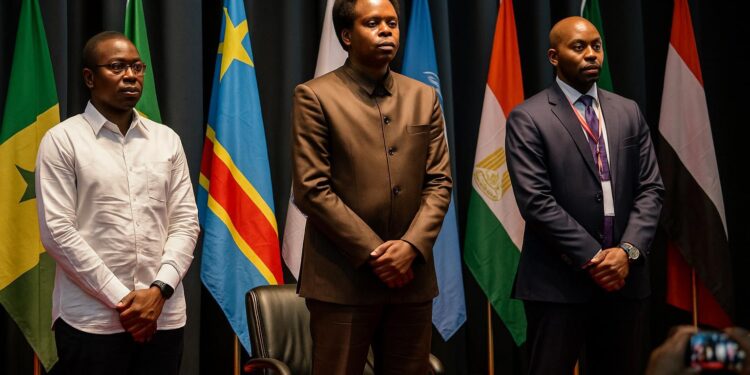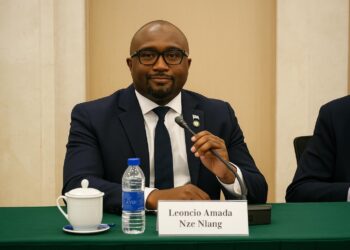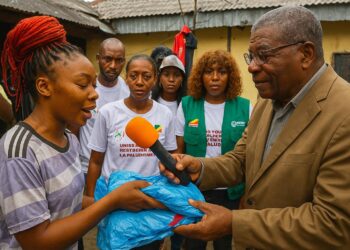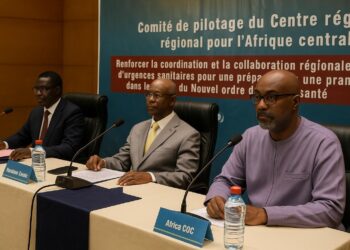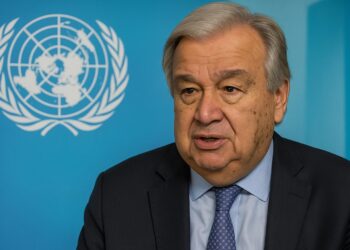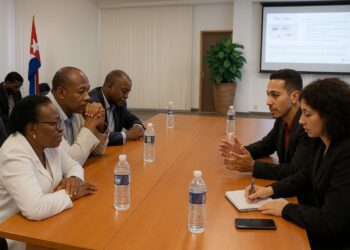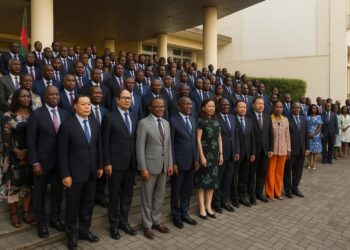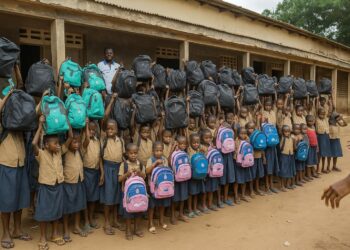Brazzaville Poised to Hear Youth Climate Roadmap
Brazzaville’s riverfront skyline will host an uncommon diplomatic rendez-vous on 23 August, as Jonathan Lumbeya Masuta arrives with a compact delegation to disclose the final communiqué of the Kinshasa youth roundtable that marked International Youth Day 2025.
The Forum International de la Jeunesse pour le Développement de l’Afrique, better known by its French acronym Fijada, gathered more than five hundred young professionals from twenty-five African states inside Kinshasa’s historic Palais du Peuple to debate the theme “Creating a Sustainable Future: Youth Engagement for the Planet.”
The forthcoming Brazzaville ceremony, scheduled at the Hôtel Saphir under the patronage of former legislator José Cyr Ebina, will simultaneously inaugurate Fijada’s national bureau, to be directed by Congolese youth advocate Daniel Biangoud, who already represented Congo-Brazzaville during the Kinshasa deliberations held earlier this month.
A Forum Gaining Continental Traction
Founded in 2017, Fijada styles itself as a bridge between African youth networks and policy-makers, mirroring continental initiatives such as the African Union’s Agenda 2063 aspiration for “an Africa whose development is people-driven, relying on the potential offered by its youth” (African Union Commission).
Organisers say the Kinshasa roundtable was financed through a mix of membership dues and logistical support from the UN Economic Commission for Africa, allowing the event to proceed without dependence on any single government or private sponsor, a detail that burnished its credibility among participants.
Yet Fijada’s leadership recognises that sustaining momentum requires formal diplomatic channels; Masuta notes that letters of cooperation have already been exchanged with the Congolese Ministry of Foreign Affairs and with Central African youth councils to secure visas, meeting venues and data-sharing agreements for subsequent regional dialogues.
Key Recommendations on Sustainable Futures
The Kinshasa communiqué, to be released in Brazzaville, urges national governments to integrate youth climate advisors within cabinet structures, echoing models adopted in Sweden and Costa Rica, and advocates for tax incentives that stimulate small-scale solar entrepreneurship across the Congo Basin.
Participants also pressed for the inclusion of nature-based solutions in the forthcoming Congo-Brazzaville Nationally Determined Contribution update, arguing that mangrove restoration along the Kouilou coast could create thousands of seasonal jobs while augmenting blue-carbon reserves, an idea welcomed by officials from the Ministry of Environment present in Kinshasa.
The communiqué’s third pillar addresses digital literacy, calling for continent-wide roaming fee reductions and the deployment of low-earth-orbit satellites to narrow connectivity gaps, a position that aligns with Minister Léon-Juste Ibombo’s ongoing strategy for a “universal, affordable and secure digital Congo” (Ministry of Posts and Telecommunications).
Congolese Stakeholders and Governmental Support
Government representatives in Brazzaville have signalled strong interest without yet committing to a binding timetable; a senior adviser at the Prime Minister’s office told this reporter that the administration views the Fijada recommendations as “constructive and technically feasible” and will subject them to inter-ministerial review once officially received.
The presence of Deputy Exaucé Ibam Ngambili and of UN country-team officials at the Hôtel Saphir ceremony is expected to lend multilateral weight, while the ruling Congolese Labour Party’s parliamentary caucus has privately welcomed the focus on entrepreneurship, seeing in it a means to stabilise urban youth employment.
Observers underscore that Congo-Brazzaville already hosts one of Central Africa’s most ambitious hydro-electric portfolios; aligning that capacity with youth-led clean-tech incubators, they argue, could position the republic as a regional exemplar of green industrialization without jeopardising its macro-economic fundamentals, which remain anchored in hydrocarbons.
Regional and International Echoes
Beyond the Congo River basin, the Kinshasa recommendations have drawn attention from the East African Youth Parliament, whose speaker, Leah Achieng, said in an interview that a harmonised framework on youth participation in climate policy could be tabled at the African Union summit in Addis Ababa next February.
Meanwhile, the European Commission’s Directorate-General for International Partnerships, which finances several Congo Basin conservation projects, has signalled tentative interest in supporting Fijada’s proposed internship exchange, noting that engaging young African professionals is consistent with the Global Gateway investment strategy unveiled in Brussels in 2021.
Researchers at the University of Cape Town’s Energy Policy Centre caution, however, that translating declarations into measurable action requires consistent monitoring; they suggest that a digital dashboard tracking each recommendation against time-bound indicators could prevent “event fatigue” and maintain donor confidence between high-profile gatherings.
Outlook for Youth Diplomacy in Central Africa
As Brazzaville prepares for Saturday’s session, diplomats stationed along the Avenue de la Corniche view the gathering as a low-risk, high-symbolism opportunity to amplify President Denis Sassou Nguesso’s stated commitment to inter-generational dialogue, while granting young technocrats a tangible role in shaping the region’s climate trajectory.
Whether those technocrats will secure the budgetary and regulatory space required to implement their proposals remains to be seen, yet the very act of convening across the river suggests an emergent diplomacy of proximity, one that places Central African youth at the centre of sustainable development discourse.

































